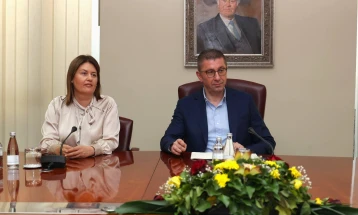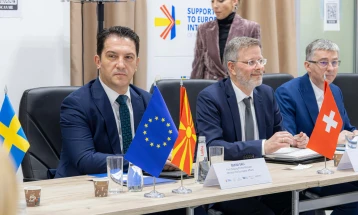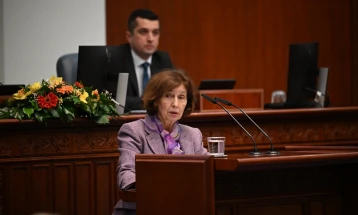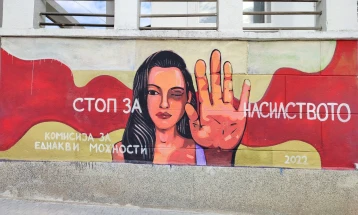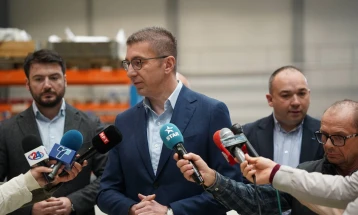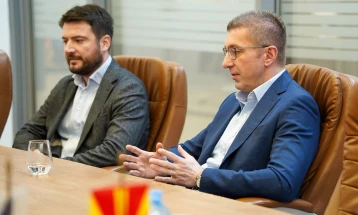Economic state consensus needed in addition to EU accession consensus, says Osmani
- Our economy is the victim of constant political crises of polarization, of the behavior of every political party that everything starts from them, including the economy. Because we’re entering a period of negotiations with the EU, the country in addition to a state consensus over EU accession should also adopt an economic state consensus, Bujar Osmani, presidential candidate of DUI’s European Front coalition and the incumbent foreign minister, said Friday.
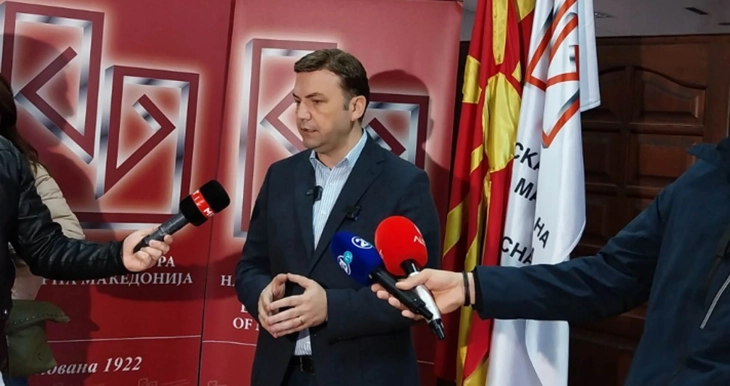
Skopje, 19 April 2024 (MIA) – Our economy is the victim of constant political crises of polarization, of the behavior of every political party that everything starts from them, including the economy. Because we’re entering a period of negotiations with the EU, the country in addition to a state consensus over EU accession should also adopt an economic state consensus, Bujar Osmani, presidential candidate of DUI’s European Front coalition and the incumbent foreign minister, said Friday.
Speaking to members of the media before a meeting at the Economic Chamber of North Macedonia, as part of a series of meetings he has been holding as a presidential hopeful with the economic factors, he said he will inform the participants about global developments and their impact on the economy in the country all the while listening to their expectations and expert analyses regarding economic trends.
Osmani stressed that the role of the president serves not only as a compass of geopolitical orientation and a connecting tissue of the ethnic and political narratives, but also as a creator of the state consensus.
If elected president, Osmani announced he will propose the establishment of a national council of economic growth, comprised of political party officials and economic actors.
“It would operate as a state managing board of sorts, tasked with establishing a state consensus over key parameters and regulations for accelerated and sustainable development,” the president hopeful said.
The national council would be consisted of five working groups: for efficient institutions and professional administration, for sustainable finances, for digitization, human capital and for infrastructure. They would be tasked with putting forward policies, laws, and regulations to the national council before being adopted by the political parties and before being implemented by both the government and the opposition.
Photo: MIA
